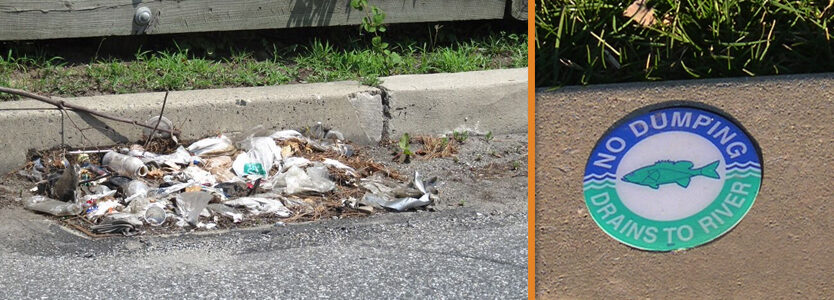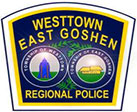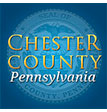What is Stormwater?
Stormwater runoff is generated when precipitation from rain and snowmelt events flows over land or impervious surfaces and does not percolate into the ground. As the runoff flows over the land or impervious surfaces such as paved streets, parking lots, and building rooftops it accumulates debris, chemicals, sediment, and other pollutants that can adversely affect water quality. The primary method to control stormwater discharges is the use of best management practices (BMPs).
Residential Properties
You’ll find more specific guidance on residential property stormwater best management practices in the Homeowners Guide to Stormwater BMP Maintenance provided by the Pennsylvania Department of Environmental Protection (PADEP).
Non-Residential Properties Including HOA Owned BMPs
You’ll find more specific guidance on non-residential property stormwater best management practices in the Pennsylvania Stormwater Best Management Practices Manual provided by the Pennsylvania Department of Environmental Protection (PADEP).
Clean Water: A Long Journey from the Source to Our Tap – 2 minute video
Municipal Separate Storm Sewer System Program (MS4)
The stormwater requirements of the federal Clean Water Act and the National Pollutant Discharge Elimination System (NPDES) are administered under the PADEP, and implemented by DEP through the Municipal Separate Storm Sewer Systems (MS4) Program. Almost all municipalities in Pennsylvania (including Westtown Township) must have an MS4 permit. A Municipal Separate Storm Sewer System (MS4) is any municipal-owned stormwater conveyance or system of conveyances (e.g. Township roads, ditches/swales, and stormwater pipes). Westtown Township has to comply with the NPDES MS4 permit through six Minimum Control Measures (MCMs):
- MCM #1—Public Education & Outreach
- MCM #2—Public Involvement/Participation
- MCM #3—Illicit Discharge Detection & Elimination
- MCM #4—Construction Site Stormwater Runoff Control
- MCM #5—Post Construction Stormwater Management in New Development and Re-Development
- MCM #6—Pollution Prevention/Good Housekeeping
Municipalities meet these MCM requirements through a series of Best Management Practices (BMPs) which are schedules of activities, prohibition of practices, structural controls, design criteria, maintenance procedures, and other management practices that reduce pollution to the waters of the Commonwealth. For more information on MCMs and BMPs please visit the PA Department of Environmental Protection Municipal Stormwater webpage where Minimum Control Measures along with the respective Best Management Practices are listed and explained.
Westtown Township MS4 Documents and Reports:
2023 Annual MS4 Status Report
2020 MS4 Municipal Facilities Inspection
Municipal Facilities Stormwater O&M Program
Westtown’s MS4 Total Maximum Daily Load Plan (TMDL) and Pollutant Reduction Plan (PRP)
Westtown Township is required to develop and implement a Total Maximum Daily Load Plan (TMDL) for phosphorous for MS4 discharges to Goose Creek, and a Pollutant Reduction Plan (PRP) for sediment for MS4 discharges to Plum Run, Radley Run, Brandywine Creek, Chester Creek, East Branch Chester Creek, Hunters Run, and Ridley Creek. These plans are required as part of the National Pollutant Discharge Elimination System (NPDES) MS4 Individual Permit application to the PADEP. Westtown Township’s TMDL/PRP has been updated and is available for public review here. Written comments from the public will be accepted for a period of 30 days from the date of this notice. Verbal and written comments will also be accepted during the Board of Supervisors meeting scheduled for August 21, 2023 at 7:30pm at the Township Building. The Plan describes proposed measures to reduce sediment and phosphorous wasteload in the Goose Creek Watershed per National Pollutant Discharge Elimination System (NPDES) Municipal Separate Storm Sewer System (MS4) permit requirements.
An interactive map of Westtown’s stormwater outfalls, conveyances, stormwater structures and MS4 BMPs can be viewed here.
Thorne Drive Basin Retrofit Project (2024)
As part of its Municipal Separate Storm Sewer System (MS4) Permit requirements, the Township is restoring the detention basin on Thorne Drive. The project included removing trees, vegetation, and sediment accumulation, regrading/removing the defined channel, installing a new outlet structure that has a low-flow orifice to provide infiltration and extended detention, creating water quality features such as forebays, and installing native plantings. The project was bid and awarded to Eagle Contracting and Landscaping in the amount of $236,162, which was partially funded by a $187,039 Growing Greener Grant. This project will help improve water quality in the Goose Creek Watershed by reducing sediment from stormwater runoff.
Sage Road Basin Retrofit Project (2022)
The Township was awarded a $100,000 grant from the PA Department of Community and Economic Development (DCED) to improve a storm water detention basin on Sage Road. These improvements were completed in 2023. This project will reduce sediment levels in the Chester/Ridley Creek area by more than 4,000 pounds annually, and help the Township comply with our Municipal Separate Storm Sewer System (MS4) permit with the PA Department of Environmental Protection. A plan of the improvements can be viewed here:
Sage Road Basin Retrofit Site Improvement Plan
Summer Stormwater Management
The summer heat and humidity is upon us. Protect your lawn by setting your mower height to 4 inches. Closely mowed grass has limited leaf area to take in the sunlight needed to produce a healthy lawn. Taller grass grows deeper roots, and shades and protects the soil. Thicker lawns are more weed resistant, absorb more stormwater, lose less sediment during storms, and need less fertilizer. Please do not direct lawn clippings into the street.
In addition, summertime thunderstorms can bring significant rain in a brief amount of time. In these conditions, even well-designed, properly functioning stormwater infrastructure can often be overwhelmed by the volume of rain. Consider landscape modifications to help your yard retain excess rainwater and prevent runoff. Redirect all downspouts which drain onto paved surfaces and storm sewers to flow into a rain barrel, rain garden, mulched bed or grassy area, located downgrade.
Report Illicit Discharges:
An illicit discharge is generally any discharge to a municipal separate storm sewer (MS4) that is not composed entirely of stormwater. Examples of illicit discharges include:
- Dumping of motor oil
- Leaves, grass, or trash
- Pet waste
- Dumping of household hazardous waste
- Sediment runoff
Common indicators of illicit discharges include abnormal odors, strange colors, or oil sheen present around or inside storm inlets or pipes. Keeping harmful substances out of our water benefits everyone; environmentally and economically. Common indicators of illicit discharges include abnormal odors, strange colors, or oil sheen present around or inside storm inlets or pipes. If you witness or become aware of an illicit discharge or illegal dumping, please contact one of the following entities:
Water Quality Hotlines:
| Name | Contact Method | Contact Times |
|---|---|---|
| DEP Environmental Complaint form | 866-255-5158 or PA DEP Environmental Complaint Form | M-F, 8 AM to 4 PM |
| DEP Environmental Emergency | 800-541-2050 | Anytime |
| Off site discharge of sediment, erosion, & other improper controls during construction | Westtown Township: 610-692-1930 | M-F, 8 AM to 4:30 PM |
| Clogged or leaking sanitary sewer lines; sewage smell; illegal discharges into creeks or storm drains | Westtown Township: 610-692-1930 | After hours call 9-1-1 |
| Fish Kills | PA Fish and Boat Commission: 717-626-0228 | |
| Dry weather outfall flows | Westtown Twp 610-692-1930 | |
| Broken water mains | Aqua PA 610-525-1402 | 24 hour |
What can you do to help reduce stormwater pollution?
Maintain a healthy, stormwater friendly lawn.
Use a rain barrel to capture rainwater.
STORMWATER MANAGEMENT SITES:
CHESTER COUNTY WATER RESOURCES AUTHORITY: www.chesco.org/water
CRC WATERSHEDS ASSOCIATION: www.crcwatersheds.org
EPA STORMWATER MANAGEMENT PAGE: www.epa.gov/greeningepa/epa-facility-stormwater-management
NONPOINT SOURCE PA (DEP & PACD): www.nonpointsourcepa.org
PENNSYLVANIA ORGANIZATION FOR WATERSHEDS AND RIVERS (POWR): www.pawatersheds.org
STORMWATER PA: www.stormwaterpa.org
STROUD WATER RESEARCH CENTER: www.stroudcenter.org
NATIONAL STORMWATER CALCULATOR: www.epa.gov/nrmrl/wswrd/wq/models/swc/
EPA Watershed Academy Webcast Seminars: www.water.epa.gov/learn/training/wacademy/webcasts_index.cfm
Act 167 Stormwater Management Ordinance
Ordinance 2013-5 Stormwater Management
Ordinance 2013-5 Appendix
Helpful Brochures on Stormwater Management:
Homeowners Guide to Stormwater BMP Maintenance
Watershed Stewardship
Managing Small Ponds
Reducing Stormwater and Flooding
Water Quality Hotlines
Rain Gardens Brochure
Understanding the Link Between Fertilizer and Stream Health
Ways to Protect Your Stream & Streamside Property
Pet Waste Cleanup
Raise Mower Height for Cleaner Water
Keep Car Washing from Hurting our Streams
PA DEP Stream Maintenance Booklet
Stormwater Management for Business and Construction:
Auto Maintenance Good Practices
Stormwater Guide for Property Managers
Guide to Preserving Trees in Development
Pollution Prevention at Construction Sites
Restaurant and Food Service Good Practices










